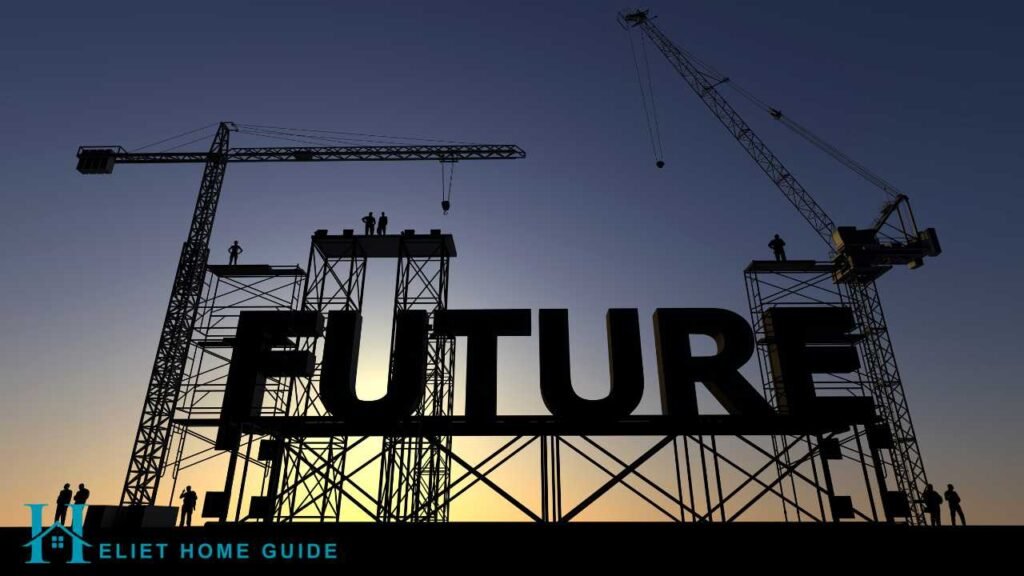Key Factors That Define a Desirable Neighborhood
Choosing the right neighborhood depends on your personal tastes and needs, as some traits matter more to certain people. A good area should have a strong and diverse local economy, with jobs in offices or industries that are not dependent on a single factory. A low crime rate should be the norm, not the exception. Commuting distance is also important—check mass transit options and how nearby work opportunities are. Families often prefer areas where children play freely and there is a good school system to increase home values. The housing market should be strong, with a vacancy rate below 5%, and rental prices close to the cost of owning a comparable home. Amenities like parks, parking, restaurants, supermarkets, and reliable public services such as garbage pickup, sewage, recycling, and emergency response are also essential. Lastly, having easy access to shopping, exercise, and leisure stores and facilities makes daily life more enjoyable. Before making a decision, it’s essential to understand how your credit history and credit score impact your mortgage options.”
Bullet Points:
- Personal tastes and needs shape what makes a neighborhood good or bad
- Strong and diverse local economy with stable jobs
- Low crime rates should be the norm
- Short commuting distance with reliable mass transit options
- Safe for young families, where children play freely
- Good school system raises home values
- Strong housing market with vacancy rate below 5%
- Access to shopping, exercise, leisure stores, and facilities
- Essential public services like garbage pickup, sewage, recycling, and emergency response

| Feature | Why It Matters |
| Strong Local Economy | Provides job stability and economic growth |
| Low Crime Rate | Ensures safety and peace of mind |
| Good Schools | Enhances home value and education quality |
| Public Services | Supports daily convenience and quality of life |
| Accessible Amenities | Improves lifestyle and leisure options |
“A home is more than a place; it’s a reflection of the community around it.”
Signs of an Up-and-Coming Neighborhood
Finding affordable places to live can be tough, especially when good neighborhoods are too expensive. But keeping an eye on up-and-coming neighborhoods can be a smart move. These areas, often located on the outskirts of already established places, show rising prospects for future growth. Implementing proven house-hunting strategies can help you secure a great home in an emerging area before prices rise.
- Increasing population means more demand for housing.
- Multiple offers on homes sold show strong buyer interest.
- Residents renovating and moving into bigger houses improve the area’s appeal.
- A shift from renters to homeowners adds stability.
- New businesses opening create more convenience and job opportunities.

Best Ways to Investigate a Neighborhood Before Moving
Finding the right neighborhood requires deep research using different resources. Start by checking the Internet on sites like Yahoo! and MSN, where you can compare key details like crime statistics, school scores, and demographic data for any city, town, or suburb in the United States. Visit local resources such as the library or chamber of commerce to find news, cultural events, and local issues that shape the area. If you want a professional opinion, hiring an appraiser for a few hundred dollars can help assess the likelihood of home-value appreciation, while real estate agents provide housing statistics and sales prices. Talking to residents is another great way to understand what it’s like to live there, learning about schools, amenities, and local government. Lastly, make multiple visits to your prospective neighborhood at different times of the day, in various weather conditions, and even drive the commute to your work—this helps you truly act like a local and try the place before making a decision. Additionally, knowing how to negotiate on a home can give you an advantage in securing a property at the best possible price.
- Use websites like Yahoo! and MSN to evaluate crime statistics, school scores, and demographic data.
- Visit local resources like the library and chamber of commerce for area-specific news and politics.
- Hire an appraiser for a few hundred dollars to assess the home-value appreciation potential.
- Speak to residents about the schools, amenities, and local government.
- Take multiple visits, experience different weather and commute to truly try the place.

| Research Method | Why It’s Important |
| Online Research (e.g., crime rates, school scores) | Provides data-driven insights |
| Visit Local Resources (library, chamber of commerce) | Helps understand local news and culture |
| Talk to Residents | Gives real-life perspectives on the area |
| Hire an Appraiser | Estimates future home value appreciation |
| Visit at Different Times | Reveals daily patterns like traffic and noise |
“The best investment you can make is in a community that grows with you.”
Understanding Zoning Laws and Future Developments
- Checking upcoming developments, zoning changes, and city planning initiatives can impact property values and neighborhood appeal. Understanding these factors is crucial when navigating the escrow and closing process before finalizing your home purchase.
- New commercial projects, highways, or high-rise buildings can either enhance or negatively affect the area’s desirability.

HOA Regulations and Fees: What to Know Before Buying
- Some neighborhoods have strict HOAs with fees, rules, and regulations that may not fit every homeowner’s lifestyle.
- Potential buyers should check HOA policies on renovations, parking, pets, and monthly costs.

Assessing Traffic and Noise Before Choosing a Home
- Busy streets, industrial zones, or nightlife hubs can create unwanted noise.
- Checking traffic flow at peak hours helps avoid unpleasant surprises after moving in.

How Environmental Risks Impact Your Neighborhood Choice
- Some areas are prone to flooding, wildfires, hurricanes, or earthquakes, which can impact insurance rates and safety.
- Buyers should check FEMA flood maps and local history for past environmental issues.

Finding the Right Community and Cultural Fit
- Some buyers prefer culturally diverse or family-oriented neighborhoods, while others look for quieter, retirement-friendly communities.
- Engaging with local events and social media groups can provide insight into the community feel.

Evaluating Property Taxes and the Cost of Living
- Some neighborhoods may have higher property tax rates or costlier utilities and services, affecting long-term affordability. Learn more about understanding your credit history and its impact on homeownership.
- Buyers should factor these into their total homeownership budget.
| Factor | Things to Check Before Buying |
| Future Development | City planning, zoning laws |
| HOA Rules | Monthly fees, restrictions |
| Noise & Traffic Levels | Visit during peak hours |
| Environmental Risks | FEMA maps, disaster history |
| Community Culture | Talk to locals, attend events |
| Cost of Living | Property taxes, utility costs |
“A great neighborhood isn’t just about location; it’s about lifestyle, growth, and a future that fits your vision.”
Frequently Asked Questions
Conclusion
Choosing the right neighborhood is a crucial step in finding a home that aligns with your lifestyle, needs, and long-term goals. A great community offers safety, strong schools, economic stability, and essential amenities that enhance daily living. Researching future developments, zoning laws, and property values helps ensure a wise investment. Engaging with local residents, visiting at different times, and evaluating factors like HOA regulations, traffic, and environmental risks provide a clearer picture of what to expect. By thoroughly assessing these elements, you can confidently choose a neighborhood that not only meets your needs today but continues to support your quality of life in the future.

Rhys Henry is a Luxury Realtor & Senior Partner at Tyron Ash International, specializing in South East London & Kent Division. A dedicated real estate agent, Rhys is passionate about helping clients navigate buying, selling, and investing in luxury properties with expert guidance and industry-leading strategies.

